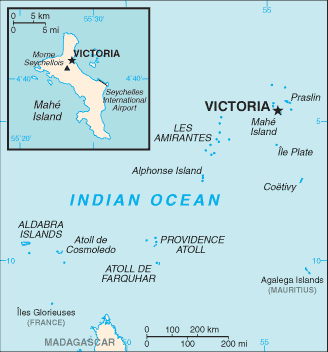Seychelles

The Republic of Seychelles has an estimated population of 87,300 (UN, 2010). The capital is Victoria. The Seychelles has an area of 455 sq km (176 sq miles). The main languages are English, French, and Creole.
Soon after gaining its independence in 1976, the stability of the Seychelles was shaken by coups, and invasion of mercenaries with nearly 10,000 internally displaced people. Seychelles has the highest standard of living in Africa and its economy depends heavily on tourism.
Seychelles is one of the rare African countries where women’s rights and equalities are enshrined in the constitution and implemented in society.
- Seychelles ratified the Protocol to the African Charter on Human and Peoples' Rights on the Rights of Women in Africa (The Maputo Protocol) on the 9th of March 2006.
- The Convention on the Elimination of All Forms of Discrimination against Women (CEDAW) was ratified by Seychelles on the 5th of May 1992.
- Seychelles has not yet adopted a National Action Plan on United Nations Security Council Resolution 1325 (UNSCR 1325).
- There are former or current UN peacekeeping mandates in Seychelles
